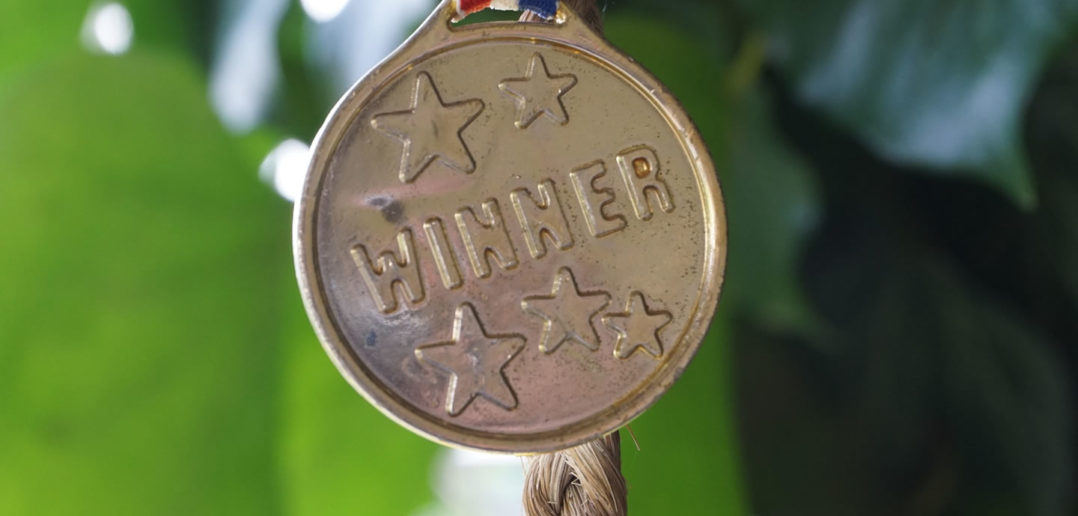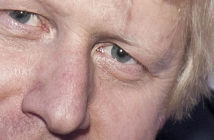‘Who’s the winner?’ ‘We’re world-beating!’ ‘We must come out on top!’ Winning-dominated language resounds across society, louder than ever in politics, constantly reinforcing the myth that the universe runs like some sort of global competition. Daily we hear about politicians beating their opposition or our government taking on our European ‘partners’; the latest contest is wrestling a global virus. Our politicians’ obsession with winning conforms to the belief that life’s a competition and the sooner you start focusing on that, the more likely you are to succeed. But this is a fallacy with increasingly damaging consequences.
An overly competitive approach doesn’t help our collective response to the unpredictable, uncertain challenges we face across society, whether it is the coronavirus or climate change, international security or global inequality. Simple competitive narratives and accompanying metrics focused on ‘being number one’ are wholly inadequate to the issues of our time. It’s been the politicians’ ‘goto’ regardless of the issues at hand for centuries. But there is an increasingly uncomfortable incongruence between the language of winning and the complex world we inhabit. Politicians clearly know to win election campaigns – but where are they learning to tackle complex long-term global issues that can’t be won or lost?
The first line of defence of this entrenched way of thinking is to state that we’re ‘wired to win’. That’s a half-truth at best. One part of our brains does respond to the experience of ‘winning’, giving us a dopamine hit that leaves us wanting more, albeit setting in train an addict’s craving for more short-lived ‘winning highs’, which bring ever diminishing returns. It’s a destructive ego-driven way of life that tears at our social fabric. However, we have an alternative: we could choose to develop the part of our brains that responds to meaning and purpose, tapping into a stronger, deeper and longer-term source of motivation, performance and collaboration.
Anthropologists have proven repeatedly that it’s cooperation, rather than brain size, the use of tools or aggression which defined the first humans. There is no biological or psychological reason why we can’t collaborate on a much greater scale if we choose to. Western culture has focused obsessively on competition over the last fifty years in an effort to get bigger and tougher, trapping us in a giant testosterone-fuelled loop where we have convinced ourselves that we if we aren’t top dog, we must be underdogs, and if we aren’t winners, we’re losers. But what if we invested the equivalent effort into developing our collaborative potential? What if Whitehall were set up to cooperate from the start, rather than to resist cooperation as much as possible. What if government departments, rather than jostle against each other for a better slice of the budget in rigid departmental siloes, looked outside their trenches to see their common cause with a win-win mindset, instead of zero-sum-game thinking. Progress is inadequate in all the key long-term issues that require cross-government cooperation, whether it’s social inequality or climate change, or the now urgent challenges of obesity and public health.
The original meaning of ‘compete’ comes from the Latin ‘competere’ meaning ‘to strive together’, not ‘against’, with no mention of winners or losers. ‘Striving together’ to understand and manage (not beat) the coronavirus would be so much more useful to enable us to tap into our collective ideas about how best to adapt. No single scientist or government minister has the magic right answer. But together, we could create the best viable solutions.
Collaboration taps into a different motivation system, that isn’t driven by ego, competition or zero-sum-game thinking. It requires autonomy, which as behavioural psychologist Daniel Pink explains, creates more engagement, adaptability and resilience than the self-limiting approach of command and control, reliant on instructions and ever diminishing compliance. We can’t ‘control’ the virus in anything other than short-term ways, and whilst we adopt that approach, we are preventing ourselves from exploring longer-term sustainable ways of living while managing it. Collaboration is inclusive and trusting and fosters strong purpose-led communities.
‘The Long Win’ encapsulates a collaborative approach to success in longer-term issues in politics (and beyond) through the 3Cs of Clarity, Constant Learning and Connection. Clarifying our broader purpose over the longer-term enables us to invest in meaningful change, not jump on the next campaign bandwagon. It’s about considering social value and environmental impact, when responding to the virus, not just trying to ‘fix’ things for the next quarterly economic figures. A ‘Constant learning’ mindset fuels us to adapt and innovate continuously, seeing education, innovation and research as essential engines to be fuelled in their own right, knowing that this is the best way to optimise outcomes over time. Finally, prioritising human Connections in everything we do allows us to put people first. Too often in politics, in business, in sport and in schools, it’s about the results, the outcomes, the trophies and the battles won – but every single one of these outcomes depends on the people that make these results possible. In order to maximise our human contributions and collaborative potential, we need to minimise our use of systems of control and compliance, monitoring and punishment.
We have seen the challenges that come from social isolation in 2020. If we don’t prioritise connection, then we lose out on the potential to develop ourselves and release the ideas, creativity and energy that our society will need to recover and thrive on a social, economic and environmental basis. All of the complex political challenges of the 21st century require a collective response, locally, nationally and internationally, with an understanding of multiple perspectives and collaborative solutions that can be adapted as we learn. Global health cannot be ‘won’ or ‘beaten’ but requires ‘long-win thinking’: a more meaningful sense of purpose, a focus on learning and collaboration, and the prioritisation of human connections above all.
Cath Bishop’s new book The Long Win: The search for a better way to succeed is out on 13th October, published by Practical Inspiration Publishing, priced £12.99.




